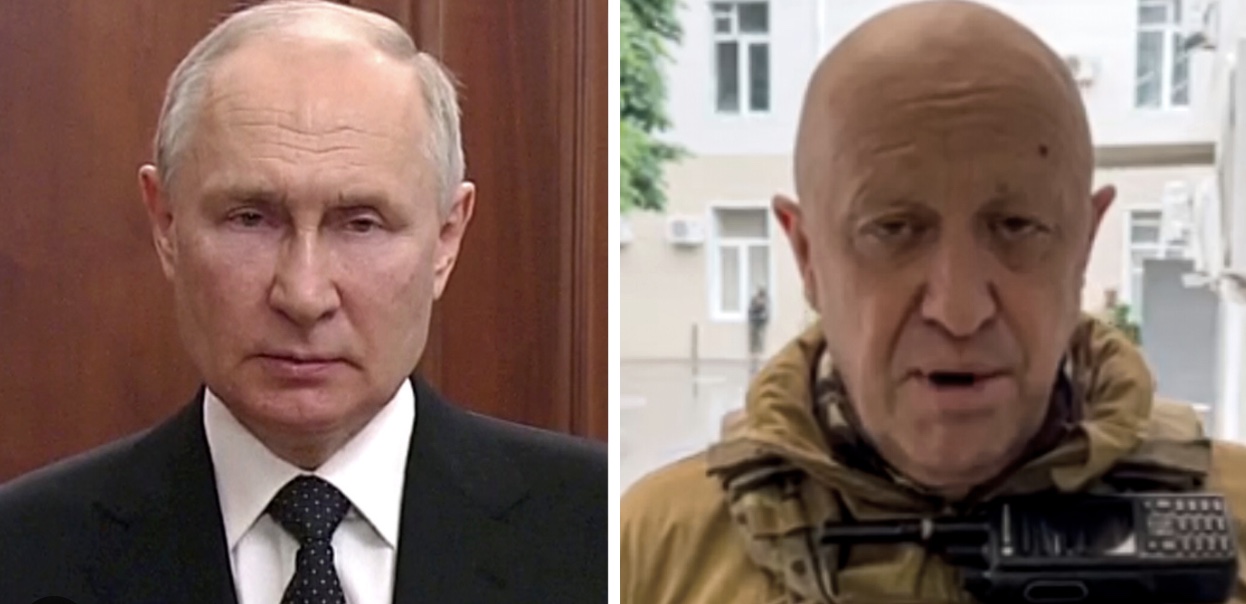Kremlin spokesman Dmitry Peskov said that Putin invited at least 29 people to the Kremlin on June 35, including Prigozhin and the commanders of the battalions of the private military group. The meeting lasted almost three hours.
After the march on Moscow Putin had labeled Progozhin a "traitor" now the admission of Putin's meeting with the Wagner leaders highlights how Russia still needs the mercenary militia which, as is well known, has become very influential both within the country and especially abroad in the Middle East and Africa.
Last week the Russian press reported that Prigozhin had traveled freely throughout Russia and the meeting between the president and Prigozhin is proof of this. As Peskov reported, the meeting took place in a calm and civil manner where both sides provided their version of recent events.
"The details of the meeting are unknown. But the… president gave his assessment of the battalion in the special military operation in Ukraine and also gave his assessment for the events of June 24 last,” said Peskov who added: “Putin then listened to the explanations of the Wagner commanders suggesting them further options for employment and their use in combat. The commanders themselves presented their version of what happened".
Peskov also reiterated the Kremlin's thesis according to which the criticisms of Prigozhin and the other commanders were not aimed at Putin himself, but at the conduct of the war by the top army. “They stressed that they are strong supporters and soldiers of the head of government and supreme commander [Putin] and said they are ready to fight for the motherland.".
Prigozhin is a former restaurateur who served a sentence for robbery during the fall of the Soviet Union. His relationship with Putin dates back to St. Petersburg in the 90s, when Putin began frequenting Prigozhin's restaurant. Prigozhin has been something of a fixer for Putin and has built a catering company and a private military group with large government contracts – ties that make the relationship even more difficult to untangle. Though the Kremlin has provided little information about the depth of the relationship between the two men, Lukashenko last week suggested Putin may have more empathy for Prigozhin than his initial public statements about the uprising have implied.
Wagner as a holding company
A chocolate museum in St. Petersburg. A gold mine in the Central African Republic. Oil and gas companies off the coast of Syria. Yevgeny V. Prigozhin's economic activities go far beyond the tens of thousands of mercenaries he has deployed in Ukraine, Africa and the Middle East. Through an extensive network of shell companies and brokerages, Prigozhin's businesses include catering, action film production, beer and vodka production, logging, diamond and gold mining, and hiring people to sow disinformation in overseas elections, including the 2016 US election. The exact size of his activity is still a mystery.
Putin recently said Russia has been funding Prigozhin's businesses, but it's unclear how much control the Kremlin has over the business network that stretches thousands of miles from Moscow, experts say. To begin its climb, much information suggests that the Kremlin financed Wagner at the beginning of its activities with about 10 billion dollars.
Wagner's main activity in Africa is the supply of mercenaries: from Libya in the north to Mozambique in the south, the group has deployed troops in five African countries, guaranteeing the safety of presidents, supporting authoritarian leaders and fighting armed groups, often at high cost to civilian populations. In the Central African Republic, Wagner ensures the safety of the president, Faustin-Archange Touadéra, and trains the army.
An army-led government in the West African nation of Mali has paid Wagner an estimated $2021 million since late 200, essentially for mercenaries to fight against groups affiliated with Al Qaeda and the Islamic State, according to the United States. According to White House officials, Wagner's agents also helped derail a decade-old United Nations peacekeeping operation, forcing Mali to rely almost exclusively on Russia.
Mr. Prigozhin's affiliated companies are present in more than a dozen African countries. They mine gold in Sudan and the Central African Republic, where they also export timber, brew beer and vodka, run a radio station, have produced action films and organize beauty contests. A firm affiliated with Mr Prigozhin controls the largest gold mine in the Central African Republic and recently signed new mining permits for the next 25 years. The mine is capable of producing earnings of $100 million annually.
As Prigozhin staged his mutiny last month, Russian troops in Syria surrounded several Wagner mercenary bases, including around the capital, Damascus. Fearing movements of Wagner fighters, Syrian forces set up checkpoints around the bases, the country's intelligence services were put on alert and telecommunications were cut. Officially, Russia intervened in Syria in late 2015 to help the authoritarian regime of President Bashar al-Assad thwart the rebels trying to oust him. But Russian paramilitary fighters from a group known as the Slavic Corps have been spotted in Syria as early as 2013. While the detailed links between the Slavic Corps and Wagner remain unclear, many of Wagner's commanders were originally part of the corps.
US intelligence officials have described that in Syria Wagner is tasked with seizing and protecting oil and gas fields on behalf of al-Assad. According to Lou Osborn, an analyst at All Eyes on Wagner, an open-source research group, at least four Wagner-linked companies registered in Russia have exploration permits for sites in Syria. All have been subjected to sanctions by the US Department of the Treasury.
Subscribe to our newsletter!
